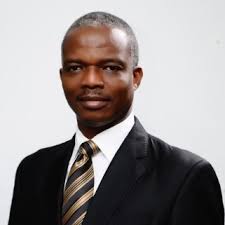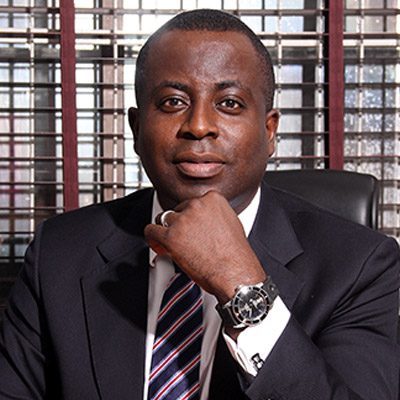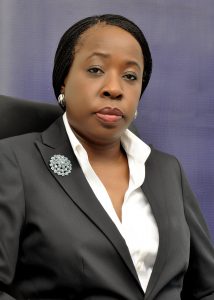By Aaron Ukodie

Operators in the telecommunications industry were unanimous yesterday in their call to the federal government to issue an executive order pronouncing telecommunication infrastructure as Critical National Infrastructure and restraining states and local governments and other government agencies from hindering the deployment of infrastructure through multiple taxation.
The operators, spoke at the first edition of the Nigerian Telecom Leadership Forum held in Lagos, where they listed ways multiple taxation and right of way disputes hinder the growth of the industry. The forum was organized by the Nigerian Communications Commission (NCC).
The event was attended by most of the Chief Executive Officers of the leading companies in the telecommunications industry, such as MTN, 9Mobile, Airtel, Globacom, MainOne, Huawei, Smile. There were also the Association of Licensed Telecom Operators of Nigeria (ALTON) and the Association of Telecommunications Companies of Nigeria (ATCON).
Nigeria’s chief tax officer, Babatunde Fowler and the Executive Secretary of the Nigerian Investment Promotion Commission (NIPC) Mrs Yewande Sadiku were also present to hear the complaints of how the harsh operating environment were hindering the pace of infrastructure deployment, growth, profitability and the inflow of both private and foreign capital.
The Vice President, Professor Yemi Osinbajo, was represented by Senator Babafemi Ojudu.
Former Minister of Communication Technology, Dr Omobola Johnson, was the key attraction at the event as she took the first shot at the call for the end of the decade-long and unprofitable talks of multiple taxation and right of way demanding that it was time for the government to issue an order to stop states and government agencies from imposing multiple taxation on the industry and allow them right of way to grow the sector.

Omobola, who had been engaged several states governments and agencies on the issue of granting operators right of way to deploy infrastructure and to reduce the taxes imposed on them, while she was a minister five years ago said: “It is a shame that the industry was still talking about multiple taxation. The federal government needs to issue an executive order, at this point, to say you can’t tax these people (the telecom operators)”.
“I agree with Mrs Johnson that the only solution (to end the growing case of multiple taxation and right of way impediments) is Executive Order”, according to ALTON President, Gbenga Adebayo.
According to him, as at today there are about 39 taxes that are imposed on Nigerian Telecom Operators, both at the federal, state and local government levels, “some are multiple and the various tiers of government relate to us as if we are an extractive industry”.
“We are the sector that supports many other industries to grow, but we are so taxed. We look helpless when states impose on us multiple taxation”, he added.
Re-echoing Omobola’s frustration, Adebayo said, “We tried over the years going back and forth on the issue of multiple taxation (engaging state governors) without result and (now) the approach must change”.
MainOne Chief Executive Officer, Funke Opeke agrees on the need for a change in approach, requesting that the National Assembly should be brought in in efforts to get states to stop the imposition of multiple taxes and right of way infringements.

Associate Professor at the Lagos Business School, Dr Doyin Salami, who spoke on the implication of Multiple Taxation on investment in the Nigerian Telecom Industry added by saying, that perhaps the executive order that the industry is clamouring for was already provided for in Section 3 of the Cybercrime Law, and should be explored.
In part of 2, section 3 of the 2015 Act, the President is empowered under the recommendation of the National Security Adviser, designate technology and telecom infrastructure as constituting Critical National Information Infrastructure that should not be tampered with.
Salami said multiple taxation was beginning to affect the telecom sector and preventing it from being competitive with the global trends, advising that the NCC and the industry should carry out a study to determine the size, frequency of multiple taxation as one of the steps to addressing the issue.
Multiple taxation, he argued was hindering the industry from raising the over $30 billion it required to build required digital infrastructure and provide access to parts of the country and achieve such innovative services as Artificial Intelligence ( AI), one of the current global rave.

He said, the telecom industry which contributes about 10 per cent to the economy needs to do well, and the government needs to grow the non-oil sector as beef up its revenue, add to achieve the required growth Nigeria has to take away the risk factor in policy formulation, in regulatory independence and predictability.
ATCON president, Olusola Teniola, bemoaned the unfortunate state where small and indegenous business who are also suffering from the same level of multiple taxation imposed on multinationals and big corporations
Professor of Corporate Governance and Founding Partner, Kenna Partners, Fabian Ajogwu said the could also resort to litigation if they find the imposed taxes unbearable, because according to him the tax man always go for soft targets, those of least resistance.

In his contribution, representative of Jeosph Tegbe, Partner KPMG Nigeria, said the issue of multiple taxation now requires that the NCC stands up for the industry, the way the Central Bank of Nigeria ( CBN) did for the banking industry some years ago.












